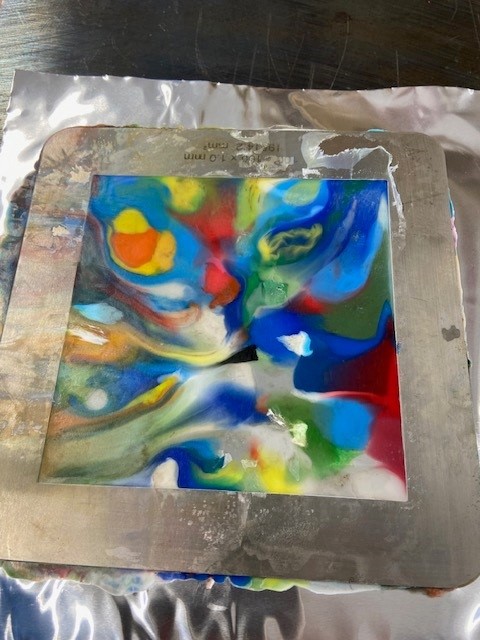Consistent batch to batch quality is the absolute key to the successful use of recycled thermoplastics. Through targeted raw material selection, technological know-how and the most elaborate process and quality monitoring, it is possible to achieve batch consistency at the level of virgin material.
Process and quality monitoring is the area where laboratory platen presses come into play as compression-molding is a defined method to produce test specimens and sheets for machining or stamping test specimens that are homogeneous and isotropic.
By adding several simple tests to your production process, you are taking great steps in professionalizing your quality system:
Melt Flow Index (MFI) is a measure of the ease of flow of the melt of a thermoplastic polymer, very commonly used for polyolefins. Tests with recycled PE and PP flakes prove that the standard deviation of the values obtained through MFI measurements decreases significantly when the flakes (regrind) are first pressed into a sheet and then cut into pieces for the MFI measurement. This results in less deviating and more reliable figures. Time and money are saved because fewer remeasurements need to be made. An alternative method is extruding / granulating the flakes (regrind) and use the granules for the MFI test. With this method slightly better results in standard deviation are achieved but it is far more laborious and expensive.

Fourier-Transform Infrared Spectroscopy (FTIR) detects different polymers and impurities in recycled thermoplastics, based on their unique infrared spectra. Depending on the test method small sheets with a thickness of 50–120 µm are used. These sheets can easily be pressed in a perfect quality using a laboratory platen press.
Density (ρ = m/V) measures the mass per unit volume. A suitable specimen can be taken from a sheet pressed from granules in an appropriate way to minimize the entrapment of air bubbles. The density depends on the crystalline structure of the polymers. The cooling rate in the crystallization stage has a great influence on the properties of (semi)-crystalline thermoplastics so it is necessary to control the cooling rate more strictly at the cooling stage.
Visual detection is used to identify whether there are impurities like crosslinked PE, silicones or metals in the feedstock. Or to check the contamination of the material after extruding / granulating to optimize the size of the mesh filter.
A laboratory platen press is a flexible and user-friendly way to prepare a sheet or shim that can be used for visual detection. If applicable the pressed shim can be heated and blown to simulate the actual film blowing process.
End of Waste (EoW) refers to the status of a waste material that meets requirements to no longer be classified as waste but as resource for new production processes. Recyclers need to analyze the recycled material and prove compliance to the relevant product legislation, such as REACH, RoHS or POP. Recyclers can use the PRE-1000-2 standard developed by Plastics Recyclers Europe (PRE). X-Ray Fluorescence (XRF) is used as an initial screening via the PRE tool. A low-cost sample preparation method is using a laboratory press to press granules into a small plate.


The EuCertPlast certification gives a recycler an assurance to suppliers and customers that the post-consumer plastics processed in the recyclers plant are treated according to best practices and with respect towards the environment.
It has been recently announced that EuCertPlast and RecyClass have reached an agreement for the future development of the certification for plastics recyclers. The two audit schemes will be combined under the RecyClass Recycling Process Certification.
